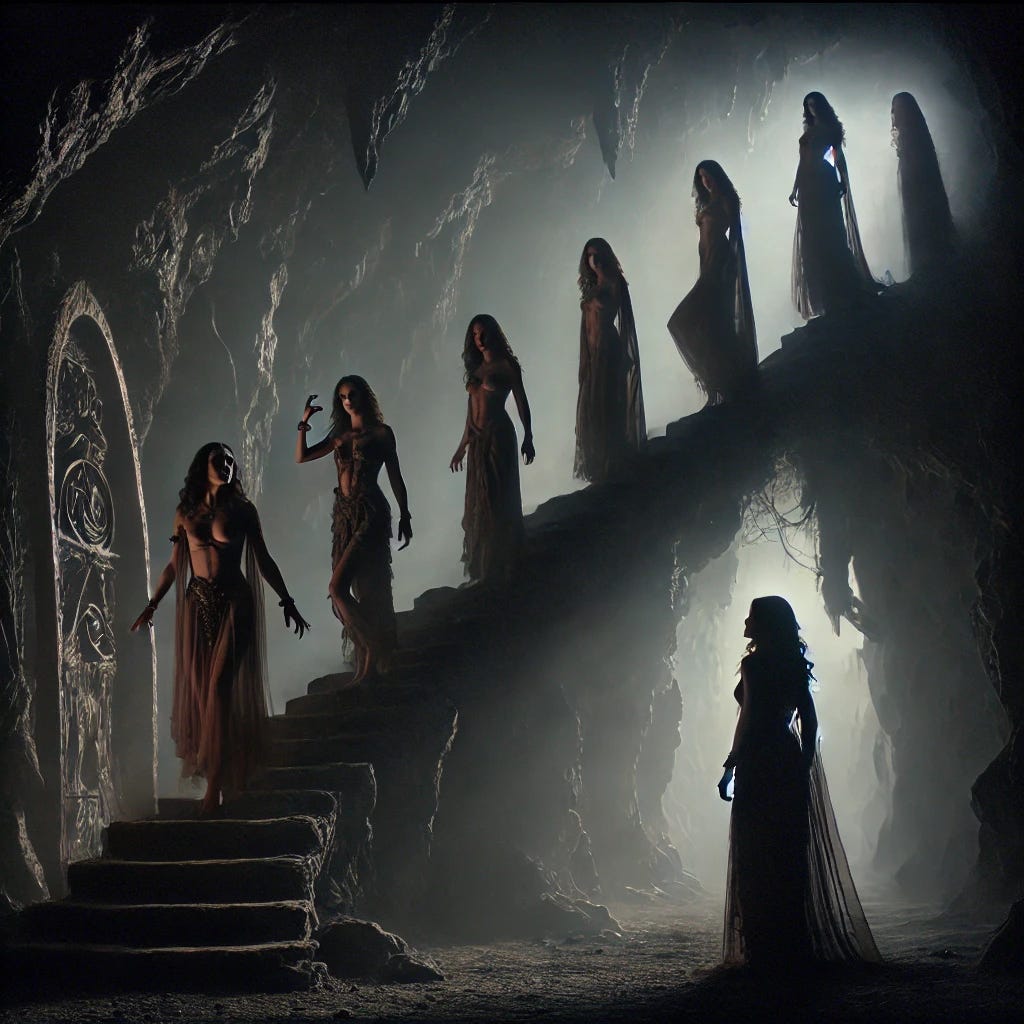The Seeds of Confrontation
To build an Empire of the Mind, we have first to reckon with existential realities such as change, evil, and death.
Inanna, the Sumerian goddess of love and beauty, descended into the Underworld to confront her sister, Ereshkigal, the queen of death and darkness. As she traveled through each gate of the Underworld, Inanna was forced to remove a piece of her royal attire. After passing through each gate, she stood naked and vulnerable before her sister. Stripped of all illusions and symbols of power, she was reborn.
In our upcoming Empire of the Mind symposium, one of the overarching themes is the need for confrontation—that is, the process of reckoning with the existential.
Confrontation arises when individuals encounter profound insights or challenging situations that force them to face unresolved questions or core assumptions they hold about identity, values, or mortality.
And this can be unsettling.
Confrontation often dissolves comforting illusions or belief habits, prompting a search for truths beyond the material or superficial. It can inspire growth, transformation, and clarity. Or it can evoke anxiety and existential dread.
It all depends on one’s level of psychospiritual preparedness.
Confrontation captures both the conflict and the potential for revelation that arises from exploring certain shadow truths head-on.
There are at least two major types of confrontation:
The first deals with the existential inner. Though themes such as death, change, and evil are connected to some mind-independent reality, the process begins with our level of subjective and intersubjective integration with that reality.
The second deals with the existential outer. Though certain societal circumstances or social facts are rooted in some mind-independent reality, most people go about in a kind of collective denial, either as digital zombies or timid herd animals.
Confrontation of this sort dispels such denial and simply wakes people up to a reality they might not have been able to perceive in the past. It can involve reports such as I feel like I developed a lens, an antenna, or another sense. Or, Once I saw it, I couldn’t stop seeing it.
This newfound sense of things can be a melding of the philosophical, psychospiritual, and cultural in a profound reconfiguring—a rebirth.
Consider this account of a beloved Buddhist Yogi:
Milarepa, one of Tibet’s most beloved yogis and poets, faced a powerful set of entities during his solitary meditation in a cave. According to the story, Milarepa encountered terrifying demons that embodied his fears, doubts, and unexamined assumptions. At first, Milarepa tried to cast the demons out. But they persisted in haunting him. Rather than fleeing, he welcomed each demon, inviting them to stay and even asked them to teach him.
The story exemplifies both the inner and outer confrontation themes: it calls for courage, presence, and surrender to what we cannot control, and it challenges us to be psychospiritually prepared for unexpected teachings.
So, confrontation is not for everyone. One has to:
Practice centeredness.
Prepare to witness the intellectual trailheads to the journey.
Brace for the possibility that confrontation will happen to you later.
Uncentered beings can experience anxiety or dread that prevents them from arriving on the shores of existential clarity and acceptance. Only those who are so prepared will be able to face the looming problems and shadowy forces that are descending on the world.
If you think you are not centered, set about first finding equipoise before joining this symposium. If you believe you are ready to confront existential truths—or perhaps you have already undergone confrontation—you will be a terrific addition to the symposium.
And you will be prepared to build an Empire of the Mind.
Current Grey Robes subscribers get the five-Sunday course (200 € value) for just 100 € as a benefit of membership.





